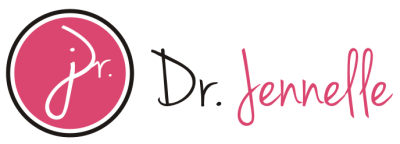But here’s why that’s wildly inaccurate (and I can speak quite confidently on this part for myself and even for Elizabeth too, as she has so eloquently written her emotions and experiences for us all to read).
We were never hiding our sexuality. We weren’t faking our lives or our love. We weren’t living a lie.
I know that for many women, this is the case. For many women who realize their sexual orientation at a very young age (6 seems to be the winning number), it wasn’t easy to simply be the person they knew they were – whether because of fear within themselves, fear of family acceptance, religious beliefs, etc. And for those women there is a very real sense of “coming out” when they are finally able to do so – emerging as who they really are, free to live their authentic life.
But Elizabeth and I are not those women.
I grew up in a very liberal, emotionally expressive family. My mother’s best friend when she was a child was gay and growing up I had countless gay “aunts” and “uncles” (that’s what happens when your parents meet doing theater together). And I don’t remember much about being 6 other than my first grade teacher’s name (Mrs. Kilpatrick) and sneaking my Smartfood out of my desk before snack time (certainly nothing about sexual tendencies). Truthfully, it wasn’t until I was in high school that I even learned ‘being afraid to be gay’ was a thing people felt; it was such a non-issue in my life and my family.
And in the last year I attended my all-girls summer camp (that I had attended every year since I was 9), I distinctly remember wanting to be a lesbian, because so many of the women surrounding me were and it just seemed so cool – they were so sure, so confident, they belonged. So at 14 I settled on saying I was “bi” and open to anything and anyone, that I was more about the connection with another person and that physical body parts had little to do with that connection for me.
And so even though I looked like your average heterosexual young adult from age 17-28, dating the captain of the football team and eventually accepting his marriage proposal, I still always had my open-mind – and more importantly, my open heart. I didn’t expect that another woman (married, with three young kids), would walk right into that opening and fill it all the way up to the tippy top. But she did and she has.
And although Elizabeth knew Rayya for years and she even took up the very big, important space of “dearest friend”, I imagine she walked into Elizabeth’s open heart in much the same unexpected way.
Truthfully, this experience is less about admittance of who we were all along and more about becoming. As Glennon Doyle Melton says, we are always becoming. And for Elizabeth and I, the current state of our becoming just looks very different to the outside world than where we were before.
And the thing with labels is that they never capture the becoming, they never capture the full story. If I met someone today, with my fiancée and our three kids, they’d likely label me a lesbian and ask which one of us carried our children. They wouldn’t know about my past or hers or how we came to be, but they would believe they knew so much just by applying that label.
But let me remind you, Elizabeth and I are terrible lesbians.
We aren’t disregarding the relationships we previously had with our male partners, we did love them, and it was a real love for that time in our lives. It wasn’t forced, or fake. It wasn’t because it was what society told us to do. It was because that was part of our becoming, and it felt good and right to us at the time. And it was.
So it’s likely Elizabeth will never shout from the rooftops that she is a lesbian. And you won’t find me up on any rooftops either.
Sexuality is more fluid than most people assume it to be and I am not the first to say that. And I am not the first to recognize that we assign labels to help us make sense of the world, but I always like to remind people that what we think we know from any label or outward appearance isn’t ever the whole story.
If we see a happy heterosexual couple out in the world with two children, we don’t know if those children are theirs biologically, if they’re adopted, if this is a second marriage, if the children are visiting their aunt and uncle, if there is severe illness at home, if they are afflicted by addiction, etc. And because there is still so much we don’t know when we have a label, I have truly never found very much comfort in labels.
Because it’s what we don’t know from the label that creates the honest connection, it’s the story behind the outward appearance that tells me whether you’re my kind of person, or someone I don’t have space for in my life. It’s what I learn after the label has been applied that keeps me wanting to know more.
Although I have been public with my same-sex relationship for over 4 years now and Elizabeth has only publicly announced hers recently, the most important part of both of our stories is that we are happy. Elizabeth and I may never tell anyone “I am a lesbian”, all we are saying is that we fell in the biggest, boldest, most beautiful love, and that she is everything and more ❤︎

